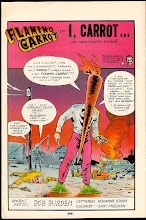I have been insulting hippy logic a lot lately. Now I think it is time I spread my love towards the logic at Fox News.
The article, “Market-Based Environmentalism is an Oxymoron” by Steven Milloy stands out as a testimony to complete jackassery. It stands out because there is no way this guy believes he is being reasonable in his writing. He has to know he is an intellectually dishonest party hack.
This guy acts pissed become some bank is trying to do environmentally friendly business. I can see getting pissed at this, if the environmental concerns of the bank are false concerns based upon bad science and result in massive destruction and inefficiency. Of course, at this point we have no way of knowing whether this will be the case or not, just like we don’t know if a bank whose only goal is profit will enact policies that do in fact, create profit. One can argue using science what one suspects will happen, but sadly this sort of argument does not exist in Steven’s article. So lets ignore these concerns and ponder why Steven Milloy is convinced it is a bad thing that this bank is going into investments with environmental concerns as part of it’s business model.
Steven says:
[Though the new policy is cloaked in the business-friendly tones of seeking “effective market based-solutions to address climate change, ecosystem degradation and other critical environmental issues,” there’s nothing market-friendly, much less people-friendly about Goldman’s appalling capitulation.
First, markets imply voluntary action. But Goldman was coerced into this action. The Rainforest Action Network started pressuring Goldman into adopting RAN’s anti-development agenda in March 2004, in much the same way as RAN wrung similar policy changes in America’s four largest banks – Citigroup, Bank of America, JP Morgan Chase & Co. and Wells Fargo. RAN announced a “Goldman Sachs Victory” on its web site this week, notching another win in its campaign against alleged “investments of mass destruction.”]
Steven is being an asshole. How is the bank “coerced”? The Rainforest Action Network cannot legislate or enforce law. How then is the bank decision involuntary, or anti-market? I would think the pressure of the Rainforest Action Network consisted of boycott, publishing damaging remarks thus sullying the reputation of the bank among potential customers and so on. There is no way the market system was violated.
What else does this guy say? He writes:
[Although Goldman says it will lobby for reducing greenhouse gas emissions, it may want to take note that the primary “market” for public policy in the U.S. — that is, the Congress — has repeatedly rejected global warming alarmism.]
What the living fuck? A free market guy is suggesting that congressional legislation is the primary “market” for public policy? So private companies dealing in health insurance is wrong because congress doesn’t see a need for health care?
Shit. I thought industry was supposed to take care of these things themselves. Here we have an example of an investment firm taking it upon themselves, WITHOUT LEGAL COERCION to pay attention to a social issue. I thought this was how the invisible hand was supposed to work. I mean if people don’t like how the bank invests, they can get a different bank right?
Steven has more:
[Goldman’s “market-based” ideas for reducing greenhouse gas emissions are rather dubious, particularly the promotion of so-called emissions trading markets.
Goldman essentially wants to profit by acting as the middleman for businesses that are compelled by the Kyoto Protocol and other similarly misguided greenhouse gas reduction schemes to trade carbon dioxide emissions allowances — that is, legal permits to emit hot air. The Kyoto Protocol, in fact, makes a commodity out of hot air — ennobling it with the status of real commodities such as gold, wheat and crude oil — “allowing” nations to buy and sell emissions allowances depending on whether they will meet their hot air emissions limits spelled out in the treaty.
Created and regulated by an international bureaucracy — literally out of thin air —– greenhouse gas emissions allowance trading makes a mockery of true markets, where physical commodities of real value are traded.]
Zing! Selling rights to make pollution is fake! Selling the right to reproduce an intellectual work is therefore…fake? Selling rights to own the legal fiction of a corporation is therefore…fake? Paper money guaranteed by international bureaucracies is …fake? The Stock market is fake? Does Stephen’s definition of a true market even allow for the exchange of goods for services? Why is selling rights to make pollution different then the other markets that very obviously depend upon the establishment of formal legislation and recognition?
Next Steven is pissed about Goldman’s investments:
[Goldman also boasts of its partnerships with Shell Wind Energy and BP Solar. But wind and solar power are expensive and unreliable. Neither is viable as an energy source without significant government subsidy. General Electric’s concept of supplying U.S. energy needs by covering 7 percent of Arizona with solar panels, for example, would cost $16 trillion for solar panels alone at current market prices. Wind power is only available in offshore or remote locations.]
Okay, maybe someone can have a reason to be pissed about this. If I wanted to make money from Goldman, and they invest in stupid things I would get mad…and invest elsewhere (I mean it’s a free-market right Steven?). But what does this have to with “coercion” and why is it “appalling”? Are these even bad investments? The problems with oil are pretty obvious. With wars, instability, and our southern coast getting smacked by hurricanes, and the price for oil being kinda high, one might believe there is an economic incentive to invest in alternative sources. Government subsidies? Libertarians like Steven don’t consider the dependence of our oil companies upon the strength of our government’s military apparatus to be type of subsidy. Fine. But shouldn’t Steven’s anger about subsidies to wind and solar power be towards the “public market” he calls congress? He, in his own words, “may want to take note that the primary “market” for public policy in the U.S. — that is, the Congress — has repeatedly” supported investment in alternative fuels.
Steven’s got more. He quotes Goldman:
[“We will adopt explicit prohibitions against financing or investing in industrial activity in certain limited areas which are so environmental sensitive that they must be preserved in their present condition,” says Goldman’s new policy.
What this likely means is described in Paul Driessen’s book, “Eco-Imperialism: Green Power, Black Death.” A dam project in India’s Gujarat province, for example, was halted after eco-activists pressured international lending agencies to withdraw financial support. The dam was stopped because it would “change the path of the river, kill little creatures along its banks and uproot tribal people in the area.”
One resident angrily called the activists’ handiwork “a crime against humanity,” as the project would have provided electricity for 5,000 villages; low-cost renewable power for industries and sewage treatment plants; irrigation water for crops; and clean water for 35 million people.”]
This is an argument? The argument from prophecy? Steven somehow claims that what the bank will do in the future is described in this book's story about a particular eco-stupidity that happened in the past? I don’t think one can conclude that because environmentalists are often stupid that a policy that invokes environmental concerns is thereby stupid. Policies based upon the motive of profit are often destructive, but only the dumbest hippy concludes policy based upon profit is thereby destructive.
What pisses me off about this whole thing is that I found this article while searching for some science pages. What we need more of is science. What we need less of are think tanks and propagandists.Full article here: http://www.foxnews.com/story/0,2933,176649,00.html







